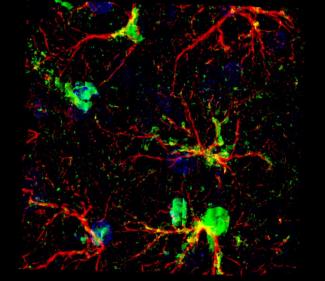 Research Labs in Behavioral/Cognitive Neuroscience
Research Labs in Behavioral/Cognitive Neuroscience
Dr. Dave Albeck (he/his)
- Uses electroencephalography (EEG) and DNA analysis to investigate the relationship between emotional responsiveness and altruistic behavior.
Dr. Ben Greenwood (he/him)
Behavioral Exercise Neuroscience Lab uses rodent models to investigate the following:
- Mechanisms underlying stress resilience from exercise
- Neural circuits governing motivation for voluntary physical activity
- Exercise and dopaminergic modulation of fear extinction and relapse
- Sex differences therein
Dr. Carly Leonard (she/her)
Laboratory for Integrative Vision
- Research investigates mechanisms of visual perception and attention, including how they may vary across individuals.
- This is done using a variety of methodological approaches, including psychophysics, EEG/ERP, and eye-tracking.
- Well-suited for students interested specifically in cognitive psychology and/or cognitive neuroscience methods in human subjects.
Dr. Melissa Simone (they/them)
- Research focuses on identifying and targeting psychological health disparities among queer and transgender young people from an intersectional perspective.
- Their program of research focuses on: 1) eating disorder prevention among queer and trans young people from a social justice and socioecological framework; 2) community-engaged research and resource co-creation to address health disparities; 3) the development of more equitable psychological assessments and scales to better assess for mental health conditions among minoritized groups; and 4) data integrity and bot detection in online research.
Dr. Jason Watson (he/him)
- Research program focuses on the behavioral and brain correlates of individual differences in working memory capacity, broadly defined as the domain-free, frontally-mediated ability to be cognitively flexible and to maintain task goals in the face of potentially distracting information.
- In attempting to answer core research questions on working memory capacity, sometimes referred to as attentional control, he has placed great value on collaborative research and on obtaining converging evidence across various cognitive, neuropsychological, and functional neuroimaging methods.
- Most recently, Dr. Watson’s research has taken an applied cognitive neuroscience approach, expanding his investigation of individual differences in attentional control beyond traditional cognitive lab tasks or settings to also include complementary, more naturalistic contexts.
